Walk the talk
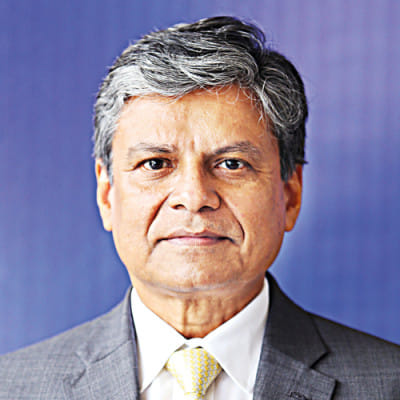
Professor Imran Rahman
Vice Chancellor, University of Liberal Arts Bangladesh (ULAB)
The Covid-19 pandemic has had a massive adverse impact on our education, mostly for public universities, who took a while to adapt to online education.
Many students could not continue their education during the pandemic. A majority of them were private university students whose parents depended on their businesses that were facing losses during the pandemic. Female students disproportionately suffered because parents gave priority to sons' education over their daughters' if there was a shortage of finances. In general, many students did not have the proper devices to connect to their classes, as smartphones are a poor substitute for laptops. Moreover, stable internet connections and the high cost of mobile data was a barrier for many.
ULAB was able to move from in-person classes to online classes very quickly, partly because we had used digital systems in parallel with physical classes. Moodle, our lesson management system, had been in place for seven years. Therefore, we had a less steep learning curve when transitioning to online classes. Yet, students did not know how to transition to online education fully. There was dissatisfaction across students worldwide with online education, but 20 months down the line, I no longer receive complaints from them regarding this. Students have now learned how to learn online, a critical 21st century skill.
Teaching online is an entirely different ball game compared to teaching in a classroom. One major issue is to do with the attention spans of students online. You have to break up the lessons since it's challenging to get students to engage online. We addressed this challenge by organising a series of workshops and training sessions for teachers. We formed a committee headed by a senior professor who would guide us on how to arrange these training sessions.
In the future, much of the learning will be done by students on their own from their homes using Massive Open Online Courses (MOOCs). This goes along with our liberal arts philosophy, where one of the things we try to instil in our students is the love for life-long learning and the ability to learn by yourself for the rest of your life.
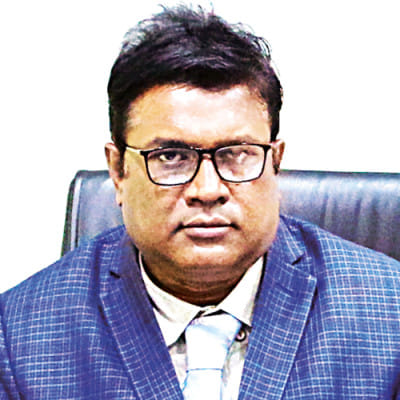
Professor Dr Md Anwarul Kabir
Vice Chancellor, State University of Bangladesh
The Covid-19 pandemic has impacted every sector, including education. When the coronavirus started to spread in Bangladesh in early March 2020, the Government of Bangladesh, in the interests of the students, teachers and other concerned closed down all the educational institutions. At that moment, we were running our spring semester 2020,on the verge of scheduling mid-term examinations.
In such an untoward situation, State University of Bangladesh identified a number of virtual platforms such as Skype, Google Classroom, Viber etc. and after critical assessment, we resorted to appropriate platforms for our different schools by late March 2020. Later, we subscribed to BD REN Zoom platform which was suggested by University Grant Commission of Bangladesh (UGC). This platform brought about harmony among the schools and in ways we conducted classes and examinations. In addition, we had been successful to conduct lab classes in accordance with the guidelines of UGC. Happily, we had been able to keep our students from Dhaka and other regions up-to-date with every academic event and in this regard, the role of our students, faculty members and staffs is highly appreciable.
I believe change is the only constant. Although the education system has seen changes, it has become more inclusive. For example, a student, who did not come from Dhaka city, could be living in the safety of his home and still be attending classes. The higher education system of Bangladesh has been able to update itself to match something that is very common in foreign universities: remote/online classes. We have organized webinars and training for our faculty members and staff to ensure that online classes were conducted efficiently, maintaining the UGC guidelines.
As known by all, commute in Dhaka city can be a problem due to traffic conditions. Students felt that doing classes online saved a lot of travel time, and they were able to concentrate more on their studies. Students, in general, were happy to be home, close to their loved ones in these tough times. That being said, we also saw happy students when our in-person classes resumed; they met their teachers and friends after a long time.
In the future, we are prepared to go online again if needed, but we also hope to be able to continue in-person classes. It is very important for the students to feel normal and safe again.

Professor Dr Chowdhury Mofizur Rahman
Vice Chancellor, United International University
We started taking online classes two months after the declaration of closure of all the educational institutions due to Covid-19. This is because everybody was expecting the shutdowns would end after a short period and so, initially, we took some preparation time to embark on digital platforms.
We had to defer some lab courses which are now being taken on campus. Because of slow internet connectivity and frequent power disruption, some students in rural areas could not participate in live online classes. They downloaded recorded lectures to watch them later in offline mode. However, a significant number of students could not continue academic activities because some members of their family were badly affected by Covid-19 and parents either lost jobs or could not get salaries for months altogether.
We provided interest-free loans and instalment-based payments to help the students during the pandemic. We are planning to offer reduced tuition fees for some vital courses which the students may retake if they think they did not learn those courses upto their satisfaction level in online mode.
We will try to take the benefits of online mode of education after resuming on-campus mode of education. We can readily switch to online mode in case of emergency situations, like on the occasion of bad weather, prolonged strike, road blockades etc. Evening programs can be conducted for professionals and job holders online which will save them both time and money. However, we want all assessments to be carried out in face-to-face mode for transparent and authentic evaluation. We have plans to equip our classrooms so that in-person lectures can be broadcast online and be recorded for viewing by the students.
We will go for a hybrid approach to cope up with the new normal after the pandemic is over. Remote or online learning will compliment on campus education. We will adopt the best of both worlds to make the effective use of technology, while also ensuring the personal touch of in person classes is also available.
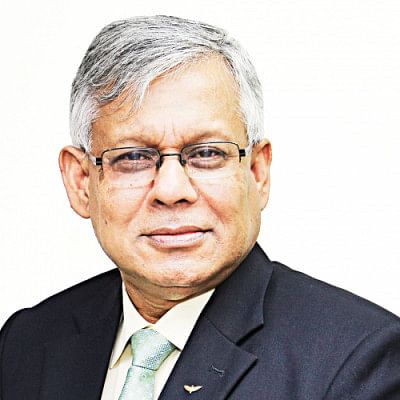
Professor Dr Shahid Akhtar Hossain
Vice Chancellor, Eastern University
The government of Bangladesh decided to close all the educational institutions, like many other countries, as part of preventive measures against the spread of Covid-19 pandemic.
Though the closure of educational institutions has been deemed as an effective strategy for breaking the transmission chain during the pandemic, it has also negative impact on students' academic progress, including learning interruptions, disruption to assessment, and complications due to the increased screen time on the various digital platforms. The pandemic has seriously affected the tertiary level students' social life, emotional health and financial condition by losing part-time jobs and in turn that will have far-fetched impact on their future education and career.
Eastern University motivated their students in using online platform to continue studies despite many difficulties. Initially it was very tough because the online system was completely new to us but gradually, we overcame that problem. To ease financial burdens, we gave special waivers on the students' tuition fees and other charges. Now, after gradual decline of the Covid infections, we have started blending the teaching-learning methodology that is the combination of online classes and on-campus classes to reduce the learning gap and to ensure health directives from the government.
It is certain that not only higher education but also our lifestyle has changed after the pandemic. After 18 months, shifting back to on-campus we are facing some problems. Students, who had grown used to online methods, are now a bit unsure to start in-person classes. They couldn't shake hands or hug their friends and have adda as they used to during pre-pandemic times. Due to lack of writing practice during online classes, they are now slow in writing and are mentally traumatized. Considering all these challenges, our university has started a blended approach and we are also providing them with psychosocial counseling.
Most students appraised the facility of having the recorded file of the class lecture that they could access several times after class. They also specified that they have grown familiar with many technological learning tools that they have used in their in-class and out-of-class study. Another significant "study-habit" that the students claimed to have achieved is the collaborative learning practice. This has been one of the positive milestones of the pandemic that they will continue to practice in the post-pandemic world.
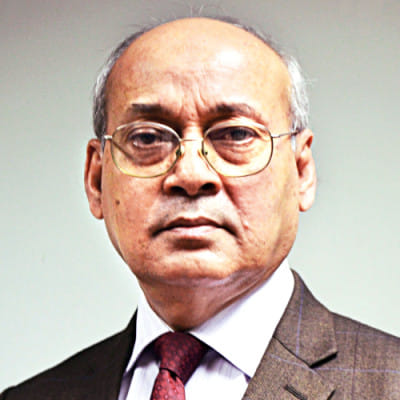
Dr Mahfuzul Hoque Chowdhury
Vice Chancellor, Chittagong Independent University
Chittagong Independent University (CIU) always stands to proliferate the level of international standard education. Situated outside Dhaka, we are always committed to ensure the quality education in Chittagong.
Like all other educational institutes, due to the coronavirus pandemic, we have been suffering from March 2020 to maintain the schedule regarding class and evaluations. We run our institution according to the instructions from UGC. This was a completely new experience. We were apprehensive; however, we were not in despair. We took lessons and kept hope.
We inaugurated a software named "CMOS" in order to keep normal academic work. We gave special scholarships for our students who were suffering from financial crises for Covid-19, when they were unable to express their need. We thought it was our moral obligation to stand by our students.
We must recognise that there is a difference between online and offline classes. Earlier, many faculty members had no experience of online teaching methods but gradually they have accommodated themselves since both teachers and students are eager and sincere about learning.
All other private universities in Chittagong run on student fees. Unlike them, the trustees of CIU don't receive any honorariums from the university fund. By publishing journals, maintaining international levels, appointing faculties who have obtained Ph.D. or M.Phil. degrees with bright academic experience and connecting an academic network with foreign universities, our university is significantly ahead.
These activities, however, received setback during the pandemic. Therefore, incentive is highly needed for the education sector. Now students are heading towards online learning which I appreciate because education would be easier. We tend to see an increase in the standard of education along with securing research. At CIU, we have excellent research centres such as Institute of Governance, Development and International Studies, Institutional Quality Assurance Cell, Centre for Excellence in Teaching and Learning, Journal of CIU with many others.
Whatever the extent of the Covid-19 pandemic, we can't step back now. We have to be more responsible to cope with this present.
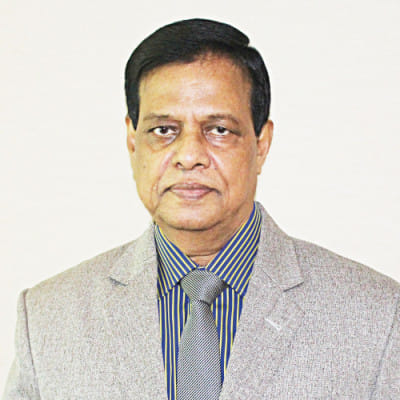
Professor Dr AFM Mafizul Islam
Vice Chancellor, Southeast University
At Southeast University, we were forced to cancel in-person classes in response to the growing Covid-19 outbreak. We switched to online learning, and students were encouraged to return home. Urgent steps were taken to provide technical resources and impart technical training to the faculty members, and improve internet connection for ensuring uninterrupted online education to fulfil the educational needs of students.
We did not find any serious learning gap in business and social science classes as we provided standard class notes online, and all lectures were recorded so that students can access anytime. What was affected were the science classes, particularly laboratory classes. We are now taking lab classes on weekends in addition to normal lab classes of the semester, and thus minimizing the learning gap of lab classes.
It is true that e-learning was unutilized or underutilized in the past, especially in a country like ours. However, the current crisis of the COVID-19 pandemic forced not only Bangladesh but also the entire world to rely on it for education. In this pandemic crisis, online education has emerged as an immediate alternative to the traditional higher education system around the world, even in Bangladesh. Though online learning has its share of issues, it is a popular innovative method for providing education. Higher education will not remain same after the pandemic. The pandemic gave us lot of experience and skills on how to tackle the situation through innovations. We will supplement on-campus learning by e-learning. For example, now a teacher can use software like Any desk, Chrome Remote Desktop, etc to conduct computer-based practical classes from home. Teachers and students can enter into e-resources library from home if they have VPN (Virtual Personal Network) connection.
We have already adapted remote learning to some level. To begin with, we will continue some Master courses online as most of the Master students are service holders who are living outside Dhaka city. They will attend classes online, and will only sit for examinations on-campus. For all other courses, it is our experience that most of the students leave Dhaka city a week before their Eid vacation, and come back after a week. During these two particular weeks, learning is affected. That is why we will conduct online classes for these two weeks. Hartal is another time when we may take online classes as well.
With our advanced technology, knowledge and experience gathered during the pandemic, we will go ahead either with in-person, or online classes, or even a combination of both on-campus and e-learning depending on what suits the course. We will continuously analyse what has worked, what hasn't worked and how to tackle the challenges we will face going forward.
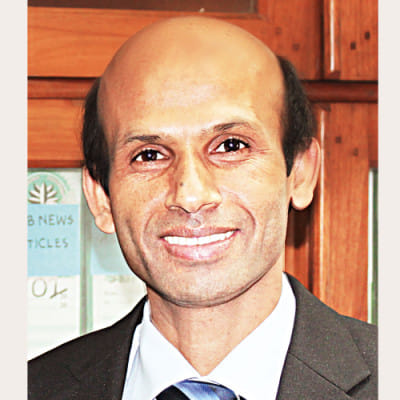
Professor H M Jahirul Haque, PhD
Senior Advisor, Board of Trustees, Canadian University of Bangladesh (CUB)
I would say that the Covid-19 pandemic has had a positive impact on higher education in Bangladesh. Bangladesh was already lagging behind in terms of online education, but the pandemic forced us to shift to remote learning.
One impressive side to Bangladeshi people is that we can quickly adapt to any challenge thrown our way. As soon as the pandemic hit, private universities in Bangladesh began the online teaching-learning process with great success. Our universities are still maintaining high-quality online education. The pandemic has given us tremendous opportunities to compete with top educational institutions worldwide by improving our online education.
Our founder Dr Chowdhury Nafeez Sarafat invested a lot into online education when he established the Canadian University of Bangladesh (CUB). He ensured the quality of higher education and research activities remained high.
CUB has been using Moodle, an online teaching-learning platform, for a long time. Therefore, transitioning to online classes in the wake of the Covid-19 pandemic, which began in March 2020, was not as challenging for our teachers.
The pandemic is almost over, but we are continuing to use a blended approach to education. There is no way to avoid blended learning because teachers and students have already adjusted to online education. Currently, at CUB, we ensure our physical classes on campus are available live online for students who are staying in remote areas or whose guardians are not allowing them to go to physical classes just yet. We will continue this blended approach even after the pandemic ends. Besides this, we are also making some certificate courses available online for participants interested in gaining training on a certain skill or learning different topics online. For example, we are offering online certificate courses on medicine, management, and leadership.
In addition to this, we are also organising many online conferences, webinars, meetings, and research activities. We will continue to reap the benefits of having online components at our university in the future.

 For all latest news, follow The Daily Star's Google News channel.
For all latest news, follow The Daily Star's Google News channel. 



Comments